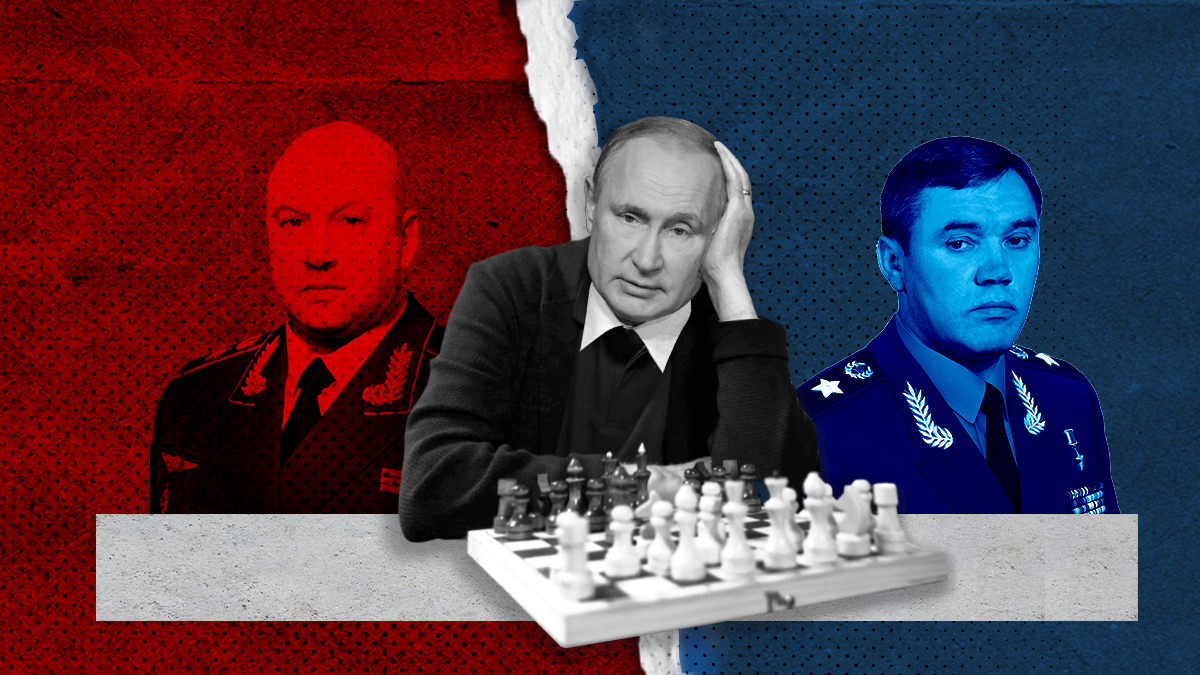Vladimir Putin has again replaced his top general in Ukraine, the second such move in 11 months of war. The Russian Defense Ministry announced on January 11 that Chief of the General Staff Valery Gerasimov will take over as commander of his country’s war on Ukraine.
He replaces Sergei Surovikin, a man Russian media have dubbed “General Armageddon” to hype his fearsome reputation as the guy who flattened the Syrian city of Aleppo in 2016.
Surovikin, who held the top job for just three months, will now serve as one of three deputies who report to Gerasimov.
Why did this happen? According to the Institute for the Study of War, a US-based military think tank, this move says as much about Kremlin politics as about the battlefields of Ukraine. It’s true that General Armageddon can be blamed for failing to halt a successful Ukrainian counteroffensive late last year and for a Ukrainian rocket attack that killed hundreds of Russian soldiers in a barracks on New Year’s Eve.
But General Armageddon is also widely seen as a favorite of outspoken warlords like Yevgeny Prigozhin (aka "Putin's chef"), head of the Wagner Group of mercenaries, and Chechen leader Ramzan Kadyrov. Both these men command troops in Ukraine who don’t answer directly to Russia’s Defense Ministry, and both have actively promoted themselves as much more effective leaders than Russia’s top brass have proven to be.
By demoting General Armageddon, Putin may be reasserting the centrality of Russia’s uniformed military as the driving force in Ukraine — and himself as Russia’s one true wartime leader. Russia’s president also made a show this week of publicly scolding his trade and industry minister for “fooling around” at a time when Russian forces badly need new aircraft.
That’s especially important at a moment when the Wagner Group is actively promoting its role this week in the claimed capture of a strategically important Ukrainian town called Soledar — though Ukraine denies that city is fully lost.
Hardliners like Prigozhin must walk a fine line. It’s proven safe for them to publicly attack the Russian defense ministry because they’re careful not to blame Putin himself for Russia’s failures in Ukraine. But the next time Ukraine claims a victory or successful strike on Russian forces, will these men say things that begin to get on Putin’s nerves?
Putin’s military reshuffle is unlikely to change the war itself. Gerasimov may prove a much more effective field commander than the two men who’ve held the job before him. But Russia’s battlefield failures and poor prospects have more to do with the poor training of Russian forces, the determined resistance of Ukrainians, active and continuing military and financial support for Ukraine from Europe and the United States, and the intensifying impact of sanctions on Russia’s ability to make new weapons. General Armageddon couldn’t do much about those problems, and General Gerasimov isn’t likely to fare much better.
That said, Putin is surely hoping that Russian forces, bolstered by newly mobilized forces, can reverse Ukraine’s momentum in coming months and score gains that boost Russian confidence. And he’s probably looking over his shoulder to be sure that self-promoting warlords aren’t scoring points at his expense.
